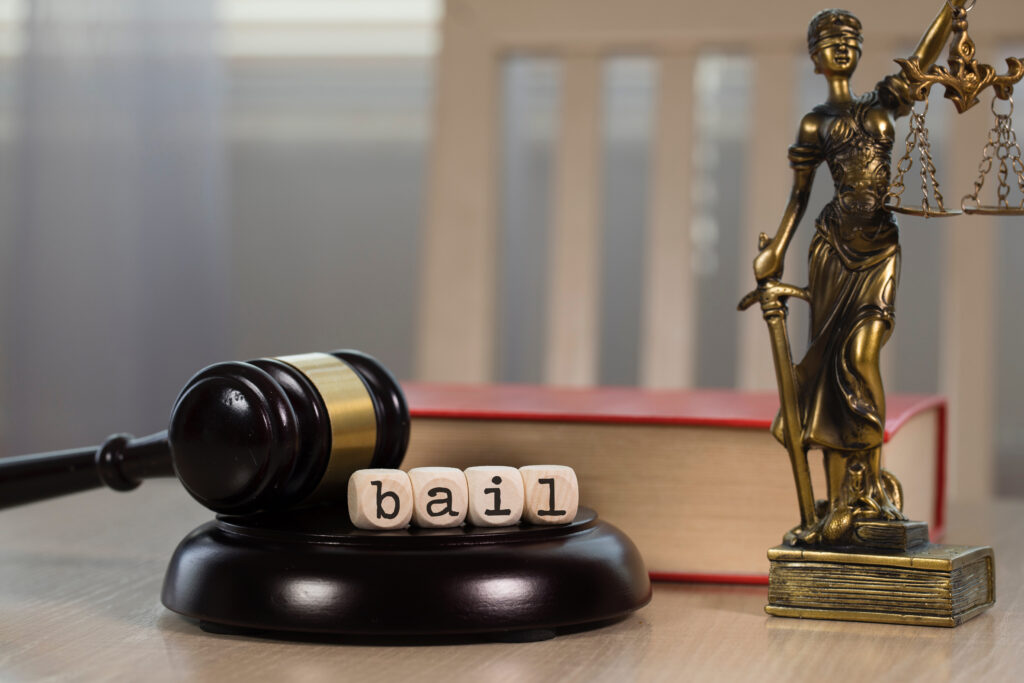What Does $100,000 Bail Mean? Understanding Bail and Release Options
Getting arrested can turn life upside down in an instant. Families scramble to figure out what bail means, how much money they actually need, and what options exist to bring their loved one home. A common point of confusion is hearing that someone has a $100,000 bail. What does that really mean? Do you need to come up with the full $100,000? Are there ways to post bail without emptying your savings?

This guide breaks down what a $100,000 bail actually represents, how bail is determined, the costs involved, and the release options available.
What Bail Really Means
Bail is money or collateral posted to the court to guarantee that the defendant returns for all required court dates. If the person shows up, the bail is returned once the case ends. If the person fails to appear, the bail is forfeited.
Bail is not a fine or punishment. It’s essentially a financial promise to the court.
What Does $100,000 Bail Mean in Practical Terms?
When bail is set at $100,000, the court requires financial assurance of that amount before release. But that does not mean families must actually hand over $100,000 in cash.
There are three main ways bail can be satisfied:
- Cash Bail – Pay the full $100,000 directly to the court. Few families can afford this.
- Property Bond – Use property, such as real estate, equal to or greater than $100,000 as collateral. This process takes longer and involves the court placing a lien on the property.
- Surety Bond (Bail Bond) – Work with a licensed bail bond company. The bail bond agent posts the full $100,000 to the court in exchange for a nonrefundable fee, usually 10% in Texas. That means instead of paying $100,000, families typically pay $10,000 to secure release.
How Bail Amounts Are Decided
Bail amounts are not random. Judges use bail schedules, criminal statutes, and personal judgment to decide. Factors include:
- Nature of the offense – Violent crimes or felonies often carry higher bail.
- Criminal history – Repeat offenders may see higher amounts.
- Flight risk – If the court thinks the person might run, bail increases.
- Community ties – Employment, family, and local residence can reduce bail.
- Public safety risk – If the person poses a danger, bail is set higher or denied.
For example, bail for a first-time misdemeanor in Dallas County may be only $500, while serious felonies like aggravated assault or drug trafficking often result in bail between $50,000 and $250,000.
Real-World Example
Imagine a defendant in Dallas County is charged with aggravated robbery. The judge sets bail at $100,000. The family wants him out of jail, but they don’t have that kind of cash.
- Option 1: Pay $100,000 cash. Money is tied up until the trial ends.
- Option 2: Use property worth $100,000+. Risk losing it if court terms are violated.
- Option 3: Call a licensed bail bondsman. Pay $10,000 fee (10%). The bondsman posts the full $100,000. The defendant is released within hours.
Most families choose Option 3 because it is faster and far more affordable.
What Happens After Posting Bail?
Once bail is posted, the defendant is released from jail under specific conditions:
- Attend all hearings and trial dates.
- Follow any restrictions, such as travel limits or no-contact orders.
- Remain law-abiding while on release.
If these conditions are met, the case moves forward and the bond remains intact. If the defendant fails to appear, the bail bond company may hire a recovery agent to locate and return them to custody.
Why Bail Is So Expensive
Hearing that bail is $100,000 or more shocks many people. But the purpose is to create enough financial pressure to ensure court compliance. Data from the Prison Policy Initiative shows that the median bail set for felony cases in the U.S. is about $10,000, which means many people cannot afford release without help from bail bond companies.
Bail amounts over $100,000 typically involve serious crimes or repeat offenses.
How Bail Bond Fees Work
Texas law generally sets bail bond fees at 10% of the bail amount, though it can vary slightly by county and case. For a $100,000 bail:
- Standard bond fee = $10,000
- This fee is nonrefundable, even if charges are dropped.
- Families may be able to set up payment plans with the bail bond agency.
Some bond companies also require collateral, such as a car title or deed of trust, to secure large bonds.
Pros and Cons of Using a Bail Bondsman
Advantages
- Lower upfront cost (10% instead of 100%).
- Faster release since agents know the system.
- Expert guidance on paperwork and court procedures.
Disadvantages
- Nonrefundable fee (you don’t get the 10% back).
- Collateral risk if the defendant skips court.
Despite these trade-offs, most families in Dallas and Tarrant County choose bondsmen because paying the full bail is rarely an option.
The Role of Experienced Bail Agents
With over 35 years in the Dallas/Fort Worth bail bond industry, A Way Out Bail Bonds has seen every type of case, from minor misdemeanors to high-dollar felony bail. Our licensed agents:
- Answer the phone 24/7 to provide immediate help.
- Accept a variety of payment methods, including payment at the jail.
- Offer mobile bond service to meet you directly if needed.
- Explain every detail so families understand exactly what is happening.
We make sure every client knows what to expect and how to keep their bond valid.
Key Takeaways
- $100,000 bail does not mean you must pay $100,000 cash.
- Most families use a bail bond company and pay 10% ($10,000).
- Bail is designed to guarantee court appearances, not to punish.
- Working with a licensed Dallas or Tarrant County bail agent speeds up release and makes the process manageable.
Call the Trusted Dallas & Tarrant County Bail Bond Experts
Facing a $100,000 bail can feel overwhelming, but you don’t have to handle it alone. At A Way Out Bail Bonds, we provide fast, professional, and confidential bail bond services across Dallas County and Tarrant County. Our team is available 24 hours a day, 7 days a week, to answer your call, explain your options, and guide you through every step of the process.
Contact us today or call at (214) 760-9978 in Dallas County or (817) 261-2828 in Tarrant County for immediate assistance. We are the trusted bail bond agency families have relied on for over three decades.
